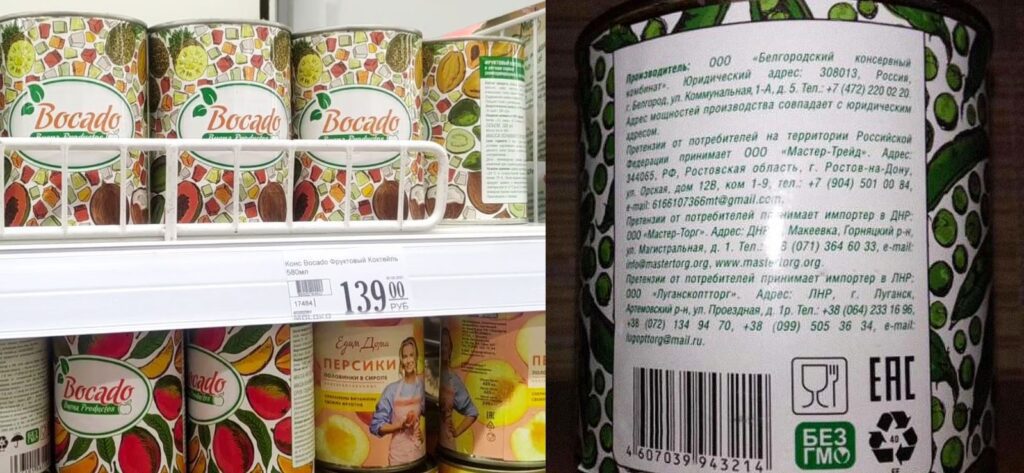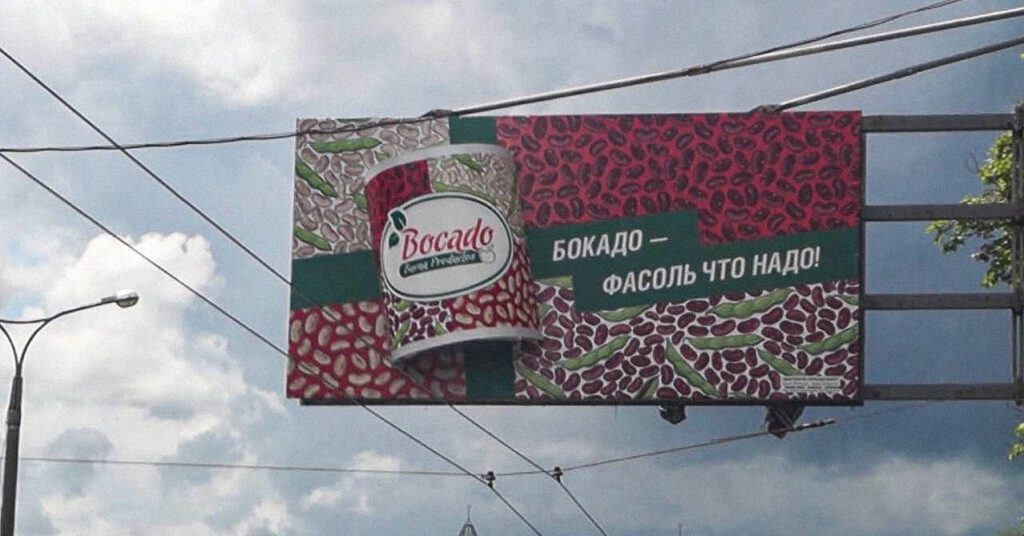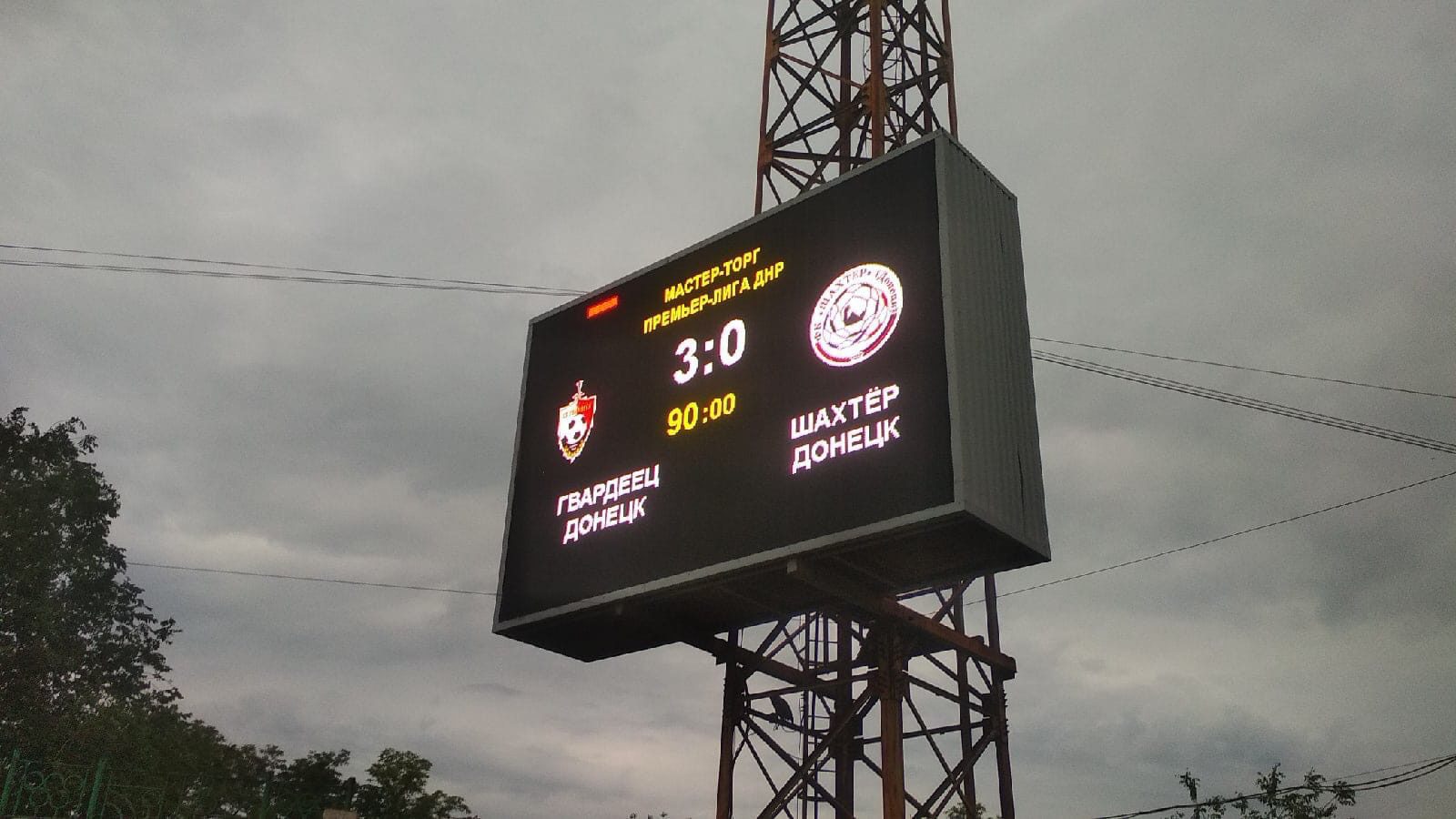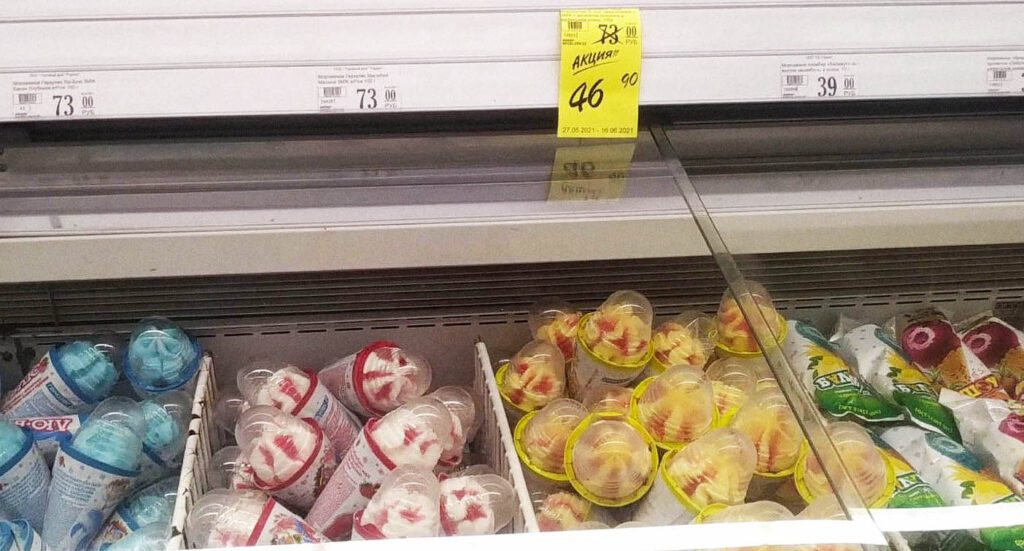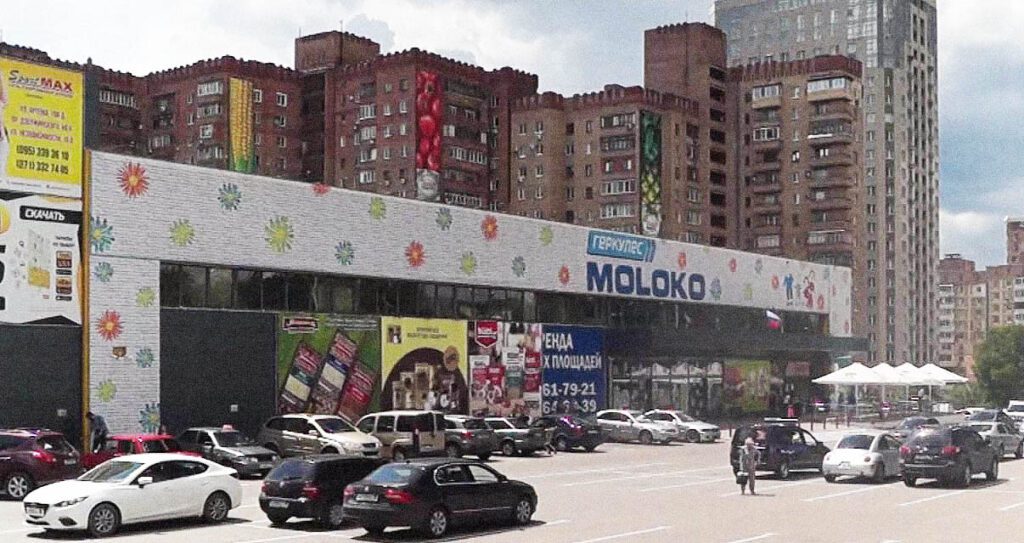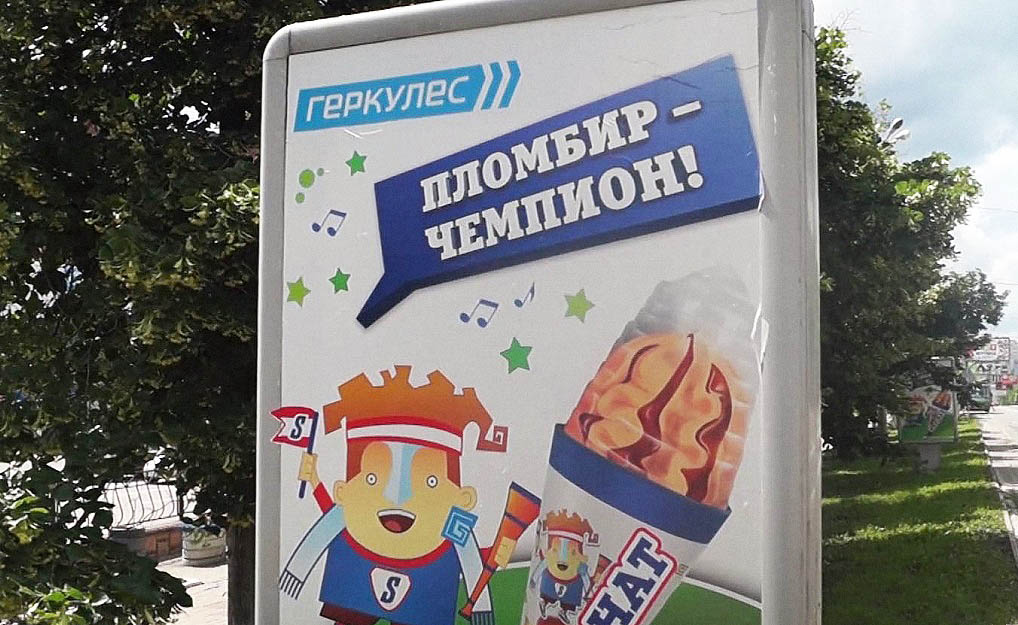In the spring of 2014, anti-oligarch slogans – besides just seperatist ones – were sounded at meetings of the “Russian Spring”: “Power to the people,” “Industries to the people”. It was with this attitude that the residents then managed to form the “Donetsk People’s Republic.” However, currently, power, influence, and big business is all concentrated in the hands of the leaders of the self-described “republics” and their cronies. News of Donbas conducted an investigation into the modern oligarchs of these “people’s republics”. Zaborona republishes this text with minor edits for clarity.
Dmitry Egurnov
Egurnov before the DNR
In 2014, the situation in the Donbas radically shifted: an armed conflict began, while a separating front line ran through the Donetsk and Luhansk regions. Of course, this situation was harmful to business: against the backdrop of the war began “squeezes” connected to looting. But for our main characters – Igor Andreev and Dmitry Egurnov – everything was going swimmingly. We’ll cover each in turn, in order to not confuse our readers. We start with Egurnov, who, unlike Andreev, didn’t own any large businesses until 2014.
We’ll first talk about how Egurnov managed to worm his way into the power structure of the DNR. But here’s a spoiler: his business continued to work even on government-controlled territory (of course, in connection with his business on non-.) His companies even managed to win tenders from Ukrainian state-owned enterprises – but we’ll cover that more in detail in the second half of this investigation.
At the start of the war, under conditions of scarcity of goods and produce, the grocery business turned into the profit leader of business in the temporarily occupied territories. Egurnov earned his massive profits on it. In November of 2014, he created the “Master-Torg” LLC and registered in non-government controlled Makiivka, a city 15 km from Donetsk (obviously to circumvent Ukrainian taxes.) The company, as described on their website, is the top distributor of foodstuffs in the so-called DNR and Luhansk People’s Republic (LNR), and is, in fact, a monopolist in the export-import sector in the temporarily occupied territories.
In 2015, the company founded its own brand name of conserved products, Bocado, and filled the shelves stores in the territories with them.

Bocado products in Donetsk. Photo: News of Donbas / Otzovik
Production is handled in the Russian city of Belgorod. We can see another company name on the can – Master-Trade LLC – which, according to Russian registration data, is also owned by Egurnov. This company in particular plays a key role, starting from 2017, in Egurnov’s business plan. Master-Trade handles all of the import from Russia for those companies that are afraid of directly working with the so-called DNR and LNR.
After a trade embargo was instituted, supplying products and produce from government-controlled territory to Russian-controlled territory was no longer possible. Alternative methods needed to be created – in other words, re-export. Through straw firms in Canada, the U.K., and even Azerbaijan, companies supply products to Russia – information on this can be found in criminal cases against these companies. Most likely, this is done through Egurnov’s Russian “Master-Trade” company.
An excerpt from the case: “In the future, by using an interrupted transit (re-export) scheme, products are supplied to the territories of the Donetsk and Luhansk regions, which are under the control of the occupational administration through the international border crossing Matveyev Kurgan.”
Vitaliy Sizov, an analyst at the Donetsk Institute of Information, Egurnov’s success could not have been possible without shadowy ties to the occupation authorities.
“It’s clear that they could not have run their business without the protection of the self-proclaimed authorities – either former or current. It’s vitally important for them in those situations where there isn’t any legal environment, where everything is done at the discretion of top officials. There are no elections, there’s no way at all to influence the decisions of the authorities. They can only work with the authorities’ blessing, and some kind of informal relationship is built between them, including financial ones,” notes Sizov.

An ad for a Master-Torg product in Donetsk. Photo: News of Donbas
A friend of the powerful
Egurnov is close to DNR head Denis Pushilin. In addition to the well-defined business scheme, this can be seen via a whole host of factors. Firstly, they both hail from Makiivka, and, it seems, are friends. After Pushilin took over the top position in the DNR from Alexander Zakharchenko, Master-Torg’s position began to improve. For example, Pushilin personally singled out Master-Torj in a decree, allotting it 500 million rubles ($6.8 million) in credit in April 2020. Credit given out to other businesses, in total, sum up to less than that the amount given to Master-Torg. This so-called ‘decree’ about credit is hidden from Pushilin’s own site, but was found on the internet as the result of a leak. Additionally, the DNR itself has over two years given Egurnov’s companies 11 million rubles ($150,000) worth of tenders. This shows the company’s special status in its relationship with the so-called authorities, as seen in the person of Pushilin.
“He’s notable because he has the closeness, the access to Pushilin personally. It follows that he can receive financing from the budget of this illegal armed group without competition,” notes human rights defender and founder of the “Eastern Human Rights Group” NGO, Pavel Lysianskiy. “We can see just how much of these subsidies go directly to the pockets of these militants, because we’ve all seen the infrastructure in Donetsk and other cities.”
Egurnov also sponsors many cultural events held in the temporarily occupied territories – local football tournaments, fighting leagues, and is a member of a number of “working groups” organized by the so-called ‘government.’

Egurnov of Master-Torg sponsors sporting events in the temporarily occupied territories. Photo: FC “Gvardeyets”, Donetsk.
Information about how Egurnov and Pushilin are friends and partners in this enrichment scheme has been spread around in anonymous Telegram channels. DNR functionaries, who have found themselves in opposition to the heights of power in the group for one reason or another, have also written about this.
Additional confirmation of their friendship can be found in social networks. Egurnov’s son, Vyacheslav, lives in either Donetsk or Makiivka – here’s his page on Russian social network Vkontakte:
There aren’t a lot of photos there, but from the ones that are, it’s clear that Egurnov’s family members don’t live like paupers: they go to summer and winter resorts. Not many teenagers in Donetsk can brag of the same. His friends list includes Kira Pushilina – the daughter of Denis Pushilin.
Egurnov himself, according to our sources, controls one of Donetsk’s television channels: “Union.” This channel is formally considered to be the property of the DNR and broadcasts propaganda. The Union TV channel is the only channel in the occupied territories that has directly advertisers Egurnov’s Master-Torg brand.
And, in comparison with other DNR media outlets, it clearly receives a lot of funding. Analogous to the Master-Torg financing situation directly from the so-called “republican budget of the DNR, Union, via Pushilin’s decree, receives millions of rubles in funding – and that’s just according to public information.
Egurnov’s Ukrainian business
Egurnov, in Ukrainian business registrars, is named as the owner and beneficiary of several LLCs – Interelectro-2010, Master-Kabel Ukraine, and Master-Kabel Kyiv.
Until 2017, these three companies worked calmly in Ukraine’s legal environment and conducted business dealings with companies on non-government controlled territory, earning profits from these activities. For 2017, Interelectro-2010 received 42 million rubles ($1.55 million) in revenue. For 2016-2017, Interelectro-2010 fulfilled government tenders to the total sum of 3.3 million UAH ($120,000), while Master-Kabel Ukraine – 1.7 million UAH ($63,000). These firms in particular concerned themselves with supplying products to non-government controlled territory through Egurnov’s own Master-Torg – and other DNR-registered companies.
These schemes did not pass unnoticed by law enforcement and security services in Ukraine: the three aforementioned companies have become objects of criminal cases on charges of financing terrorism. According to case documents seen by News of Donbas, the Security Service of Ukraine (SBU) insists that Egurnov has passed legal ownership to straw owners, while maintaining overall control and earning profits from their operation.
The SBU, it seems, has gathered their own evidence, but here’s what we managed to find about these straw owners and their ties to DNR businessmen.
Posterior protections
Egurnov stopped being listed as the beneficiary of these companies only in August of 2017. Master-Kabel Ukraine LLC, with a legal address in Kyiv, at the moment belongs to someone called Tatyana Oleksandrova, while Interelectro-2010 LLC, with a legal address in Mariupol, belongs to one Anastasia Bazhanova.
There’s not a lot publicly available and known about Oleksandrova, but Bazhanova, on the other hand – according to registrar information – manages 15 companies in different parts of Ukraine. However, in 2020, she was accused of stealing a perforator costing just $24. In 2021, she received Interelectro-2010. Before Bazhanova, the company was owned by Serhiy Shakul. We easily found his social media profiles.
Shakul is from Makiivka, but currently lives in the Kyiv region. His friends list includes Oleksiy Egurnov – Dmitriy Egurnov’s father.
Shakul, when contacted by News of Donbas, stated that he “doesn’t know” anything about Interelectro-2010, or about Oleksiy and Dmitriy Egurnov, and he “doesn’t use” social networks.
But that’s not all. In two other criminal cases, Interelectro-2010 is being charged along with Trading House “Interelectro-Kyiv” LLC, and Trading House “Interelectro” LLC. These companies were founded in 2017 and 2016 respectively, and their beneficiary is one Vadym Bobrytskiy. By digging through the archives of the Interelectro site, we found that it used to be the of Egurnov’s Master-Kabel.
It was also easy to find Bobrytskiy on social networks: he’s from Donetsk, and currently lives in Kyiv. Dmitry Egurnov’s father, Olekskiy, is once again in his friends list.
We contacted Bobrytskiy, who admitted that he’s familiar with Dmitry Egurnov, but said that they’re currently not in contact.
The only company we’ve yet to pay attention to is Master-Kabel Montazh LLC, which is also mentioned in criminal cases. It’s beneficiary is Anton Chekhovskiy, also from Makiivka, though he currently lives in Moscow. Dmitry’s son, Vyacheslav, is his friend on Vkontakte.
Egurnov has used all of these “Masters” and “Interelectro’s” to conduct business with DNR-registered Master-Torg, Galaktika, Inter-Torg, and others, according to the SBU.
The chain is complex and twisted, and it isn’t clear if this scheme is currently being used. But it’s likely that Egurnov has completely refocused his attention to Russia and continues to manage his businesses in the temporarily occupied territories.
Igor Andreev
Rising from the 90s
Until 2014, Igor Andreev was a rich man. He was connected to the organized crime group Lyuks (or as it was also known – Boxers). His friends were a part of this group – co-owners Yuriy Ruban and Gennadiy Uzbek.
In the 1990s, after the fall of the Soviet Union, Andreev worked in the business of procuring and selling scrap metal. His main companies were the Donetsk Metal Rolling Plant, the electric smelting plant “Elektrostal” and “Vtorsyrye”. At the end of the 00s,, the partners, who became one of the largest scrap sellers, began to build a chain of ferrous scrap metal – steel feed – rolled steel.
Aside from metallurgy, Andreev owned an ice cream, dairy, and frozen food company – Hercules PJSC. Ukrainians are well-acquainted with this brand and perhaps even remember its outrageous advertisements of 2011.
That same year, the Ukrainian edition of Forbes estimated Andreev’s wealth at $85 million. After the DNR seized parts of the Donetsk region, Andreev’s business moved to government-controlled territory and continued to function – but obviously, it was impossible to move the dairy and metallurgical factories from Donetsk itself.
“Steel Hercules” on two fronts
That’s why, according to the laws of the so-called DNR, a new company was formed: Trading House Gornyak LLC, which received control of all of Andreev’s businesses.
No one seemed to care enough to hide that fact. On a website called “All About the DNR”, the company appears to be the owner of the food product brands Hercules, Pan-Fazan, and Dobrynya. Additionally, the company is located next to the Donetsk Dairy Plant, which is owned by Andreev.
Publicly available information from former business owners also contains the fact that in 2016, TH Gornyak received a monopoly on scrap metal purchases from the DNR. This data is confirmed by criminal cases and investigations in Ukraine.
At the same time, the DNR has announced that metal is a strategically important resource and has set down regulations for working with scrap. But informally, according to an oral decree set down by the former so-called Minister of Industry and Trade, Aleksiy Granovskiy and the former so-called Minister of Revenues and Duties Aleksander Tymofeev (callsign Tashkent), all companies were required to sell their scrap to a single buyer – the company Gornyak, and not take it to the Yenakiyeve Iron and Steel Works, which recycles scrap into useable metal.
These regulations appeared only a year and a half after the formation of this “government.” The industry was entirely in the shadows before then.
“Ukraine has no access to documents on non-government controlled territory. Ukraine cannot check if there actually exists a preference for this company, and if the DNR authorities actually are giving it some sort of property,” notes Tatyana Ivanova, a legal expert and participant in humanitarian subgroups of the Trilateral Contact Group for Donbas. “This can all be settled only when we have access. At the moment [we can only talk about this] on the basis of journalistic investigations, because this will play a very large role in the future. However, journalistic investigations are not evidence. For that we need documents, but we cannot access the sources for them.”
Why was Andreev chosen in particular? In 2015, the Anti-terrorist Center of the SBU produced order no. 415, “On the approval of the temporary order of control over the movement of persons, vehicles and cargo (goods) across the contact line within the Donetsk and Luhansk regions”. The temporary order stated that enterprises that represent a single production chain (whose links – factories, workshops and warehouses – ended up in non-Ukrainian controlled territory) can claim transit across the contact line.
This is where Andreev became useful, because his Elektrostal company in the small town of Kurakhove is located on government-controlled territory, while his scrap factory is located on non-controlled territory. Under this cover, metal could be exported and sold in Ukraine for twice the price.
The SBU became interested in this fact when 19 freight cars full of scrap arrived once more in the front line town of Kostyantynivka. It was confirmed there that the owner of the cargo was TH Gornyak, and Andreev’s Elektrostal and Gornyak companies both took part in this transport scheme.
The Zhovtnevyi District Court of Mariupol seized that scrap, but the Donetsk Regional Court of Appeals nullified that decision. The judges ruled that “…the conclusions of the intelligence services are not objectively confirmed, and have the character of operational, not procedural, information.”
After the creation of a blockade in 2017, this scheme no longer functioned – but the foodstuffs side of the oligarch’s business blossomed.
Hercules did not give in
Until 2018, the beneficiary of the Kramatorsk-registed Hercules PJSC was Igor Andreev. Afterwards – it was one Viktor Gashpar, who recieves the lion’s share of Andreev’s businesses. In 2016, top management was handed to Igor Kaveshnikov.
That same year, Kaveshnikov gained public recognition as a member of the jury judging student business projects at the Donetsk National University, as the general director of Gornyak.
In 2019, according to an article published in the newspaper Donetsk Vecherniy, Kaveshnikov was stated to have the role of ‘head of an ice cream and frozen-food subsidiary’ at that same Gornyak company.
“Some people have figured out how to conduct business simultaneously on controlled and non-controlled Ukrainian territory. People have organized this in a lot of different ways. Some have left parts of their businesses on non-controlled territory and appointed directors that live in controlled territory. [In other cases] directors who live on non-controlled territory, in order to not leave and resell their assets, have given power of attorney to people who live on controlled territory. This power of attorney allows them to formalize their participation in statutory funds. Or, trust management agreements were created in order not to travel here, to controlled territory,” comments Ivanova.
Andreev’s business in the DNR today
The Kramatorsk-registered company Hercules PJSC is today undergoing legal bankruptcy, yet its frozen-food brand is still stocked on the shelves of Ukrainian stores. Why is that?
The pelmeni and varenyky under that brand name are currently supplied not by Hercules, but by Provyntsya Plus LLC, which is registered in Kyiv. This brand is active on social networks.
But for some reason, the Hercules ice cream brand’s site seems not to work. Via web archives, we found a version of the site from July 2020 – where a large assortment of ice cream is advertised.
In social networks, the last post of that brand was in September 2020.
The producer of this ice cream in the “larger Ukraine” never responded to calls for comment, their products can no longer be found in stores.
In Donetsk, Hercules is doing much better. Andreev’s foodstuffs empire keeps growing every year.
At the moment, in the temporarily occupied territory, Hercules sells both dairy and meta products, frozen foods and ice cream.

Hercules brand ice cream on sale in Donetsk. Photo: News of Donbas
Everything had been going so well that Gornyak opened its own chain of supermarkets – Hercules-Moloko. Later, Andreev receives the premises of the former chain of Amstor supermarkets for his own. Amstor worked in Donetsk until 2017-2018, and was with time ousted from the territories.
So many new stores were opened that locals began to joke about it on social media. Jokes aside, Hercules-Moloko can now be found on every step, which helps Andreev’s organizations secure a stable flow of cash.

A Hercules-Moloko supermarket in Donetsk. Photo: News of Donbas
Moving on: the Donetsk Metallurgical Plant (DMP), which was idle for two years, now owes back pay to its workers. This is a consequence of the planet’s management by Vneshtorgservis, which at that time was associated with the fugitive Ukrainian oligarch Serhiy Kurchenko. And so the plant has partially resumed operations.
These sorts of stories on local TV are widespread: “We revive the industry to its former glory”, “long live metallurgy,” and so on – all thanks to investors who, for some reason, have not been named by the DNR.
According to our sources, this investor is that same Igor Andreev. This is how he’s once again returned to metallurgy.
The businessman also controls the Yenakiyeve Coke-Chemical Plant, the Shchehlovska-Hlyboka mine, the Chumakovska processing plant, and the mine administrator Donbas. Now, along with the Donetsk Metallurgical Plant, these enterprises form a single production chain for smelting metal.
“The militants on occupied territory want to show people that the situation has improved and that there will be economic growth. Like, look, we’re inviting investors – these are simple stories for the people. That’s why today the situation with the DMP is at a standstill: it’s the same as it ever was. What’s more, in order to get media coverage for the reconstruction of the DMP, the former head of Hercules was chosen, who is presenting himself as an investor. He was simply chosen as a trustworthy person, one who wouldn’t say anything unnecessary and who as an executor will do what he’s told,” believes Pavel Lysianskiy.

An ad for Hercules brand ice cream in Donetsk. Photo: News of Donbas
And, of course, Andreev is “one of ours” – why else would the DNR allow him to not pay taxes or electricity bills? All of Andreev’s businesses have been freed from these burdens. According to data provided by the ex-head of the Donetsk city police, Yuriy Sednev, Andreev is currently not located inside the occupied territories proper – which hasn’t affected his ability to earn a profit.
“Business is separate – politics is separate. His business on that territory is connected to foodstuffs – and that’s problem number one [for the DNR], as it relates to stability and holding power. Obviously, businessmen need to make their peace with this and that’s why they work there. If he [Andreev] had strong patriotic leanings towards this so-called government, then would be there. But I know that he’s not [in the temporarily occupied territories] and has no plans to go,” says Sednev.
Who’s a real oligarch, or money is money
And that’s how our ‘heroes’ have managed to build their business empires: on a lack of principles, schemes, and cooperation with the self-proclaimed authorities. Naturally, none of this would have been possible without the express permission of Kremlin curators.
“There are some sort of people there who no one elected, but were just appointed to manage this territory. They are in practice parts of the bureaucratic apparatus – these are the biggest oligarchs and Russians officials who supervise these territories enrich themselves off of them. But these people [Egurnov and Andreev] don’t have that sort of power. They were given the opportunity to earn some money, but they can’t directly influence the situation, they can’t create their own private media, and they can’t appoint their own people to positions of power – that’s why the situation there is even more complicated than on controlled territory,” notes Vitaliy Sizov, an analyst with the Donetsk Institute of Information.
There are criminal cases against Egurnov, Andreev, and their companies in Ukraine, but the investigations are still ongoing. Additionally, Ukraine has a policy of imposing sanctions on people cooperating with the L/DNR ‘authorities’ even before the end of an investigation. However, our ‘heroes’ can’t be found in a single sanctions list.
Republished with permission from Mediaset


